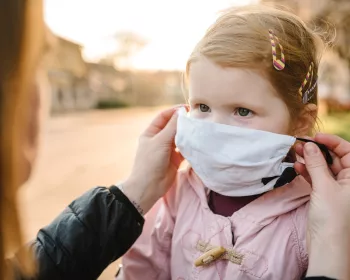Exposome: exposed microbiota puts health at risk
Have you ever noticed that some people seem to get sick more often than others? Behind this inequality lies a concept as holistic as it is revolutionary: the exposome. All the environmental factors we’re exposed to throughout our lives influence our health more profoundly than we realize. The microbiota may well play a central role. Explanations below.
- Learn all about microbiota
- Microbiota and related conditions
- Act on your microbiota
- Publications
- About the Institute
Healthcare professionals section
Find here your dedicated section
Sources
This article is based on scientific information
Sections

About this article
The food we eat, the water we drink, the air we breathe, not to mention our living and working environment... To what extent do the factors we’re exposed to from cradle to grave play a role in the relentless advance of chronic disease? This question poses a real challenge for the scientific community.
350 000 The number of different man-made synthetic chemicals present in the environment today 5.
9 millions The number of people who die prematurely each year from the cumulative effects of environmental exposure (12.6 million according to WHO ).
24 % The percentage of deaths worldwide caused by environmental factors (28% of deaths in children under the age of five).
While scientists have been working for many years to measure the impact on health of each of these factors, we still know very little about the physiological harm they cause when combined and accumulated over the years.
Some act synergistically (cocktail effect), while others offset each other. Furthermore, their impact differs according to the stage of life when one is exposed to them and on the duration of exposure1.
Nature and microbiota: how does it affect your health?
Exposome: a global approach to health
Urbanization, stress, climate change, modern diet, toxic products... In 2005, driven by the need to better understand the often complex exposure to these multiple environmental factors, British epidemiologist Christopher P. Wild (current director of the International Agency for Research on Cancer – IARC) proposed the concept of “exposome”. Wild defines the exposome as “the sum of all exposures a person experiences from conception to death.”
He sees the exposome as“a complex and dynamic representation of the exposures we experience during our lifetime that integrates chemical, microbiological, physical, recreational, medicinal, lifestyle and dietary environments, as well as infections.”2
Genome and exposome: complementary, my dear Watson!
Beware of shortcuts – and easy explanations – that contrast genome and exposome. On the contrary, they complement each other. The exposome echoes the concept of the genome and comprises all non-genetic factors that influence our health. It complements the genome-centric approach, which, by limiting itself to genes and chromosomes, offers only a partial understanding of the onset of disease.
For Christopher Wild, chronic disease can be explained by interactions between our genes and the environment, hence the need for methodological tools to develop and improve the sciences of exposure, which are still insufficiently taken into account.
Breathing, washing, dressing, eating, working, and sleeping are not so trivial after all. They expose us to sources of micro-particles, chemicals, pollutants, heavy metals, stress, noise, radiation... all potentially harmful to our bodies and microbiota.
From exposome to the One Health initiative: acting globally
It’s no secret that our health is intimately linked to that of the animals, plants, and microorganisms living on Earth.
We all belong to the same ecosystem, and the interactions between humans, flora, and fauna and our environment shape our collective health. We’re all exposed to the same contaminants, whether chemical pollutants, pathogens, or the effects of climate change.
The concept of the exposome thus fits naturally into a global approach like One Health. The One Health initiative is recognized by the World Health Organization (WHO), the Food and Agriculture Organization of the United Nations (FAO), and the World Organization for Animal Health (WOAH) and highlights the interdependence between human, animal, and environmental health.3
A better understanding of the exposome, i.e. the exposures we experience during our lifetime, is therefore crucial to reducing the risk of disease and making good habits part of our daily lives. But what about the microbiota?
Microbiota and exposome: a dialog at the core of our health
What if our health depended on the dialogue between our environment and the billions of micro-organisms that inhabit our bodies? Pollutants, food, stress, nature... the exposome constantly interacts with our microbiota and can influence their fragile balance. A little-known but central link, particularly in the prevention of chronic diseases. The impact of nature on our microbiota, and that of urbanization, bear witness to this.
Discover how this silent exchange shapes our health.
Microbiota and exposome: a dialog at the core of our health
Microbiota under pressure: how the exposome promotes chronic disease
Our environment has a profound influence on our health... by affecting our microbiota. Endocrine disruptors, microplastics, drugs, ultra-processed foods: these are all components of the exposome that weaken our intestinal ecosystem and promote chronic disease. Science is now revealing how these disturbances can lead to obesity, depression, IBD and allergies. Examples include the fungal exposome and bacterial resistance.
Explore the links between environment, dysbiosis and modern diseases
Microbiota under pressure: how the exposome promotes chronic disease
From birth to death, an exposome with different consequences on our health
Our sensitivity to the environment evolves with age. From pregnancy onwards, the exposome modulates immunity, shapes the infant's microbiota and influences his or her future risk of asthma or allergy. In adolescence, it impacts mental and skin health. In adulthood, it determines inflammation and overall well-being. In senior citizens, it can preserve or alter longevity, as shown by the study on the microbiota of centenarians.
Discover how each stage of life interacts with the exposome.
From birth to death, an exposome with different consequences on our health
Towards a more favorable exposome
We may not have everything under control, but we can do something about it! A beneficial exposome is possible: a fiber-rich diet, physical activity, living in contact with nature, gentle hygiene, reducing disruptors... all simple levers to protect our microbiota and prevent disease. The Mediterranean diet and a rich microbial environment are living proof of this.
23 % The percent decrease in mortality among women whose diet is the closest to the Mediterranean diet compared with those the furthest from it.
25 % The percent decrease in cancer risk among those who follow an organic diet (-34% for breast cancer).
Discover concrete ways to cultivate a healthy environment.
Towards a more favorable exposome
Microbiota are the sentinels of our environment. Living interfaces between our bodies and the outside world, microbiota are a faithful reflection of our environment. Understanding the exposome means identifying the levers we need to live better, age better and prevent the diseases of tomorrow. The exposomic approach sheds new light on our relationship with public health, ecology and everyday behavior.
Exposome explained by our expert
1. https://www.inserm.fr/c-est-quoi/ambiance-ta-life-cest-quoi-lexposome/
7. OIE (2021). One Health: A collaborative, global approach to understanding risks for human, animal, and ecosystem health.


















